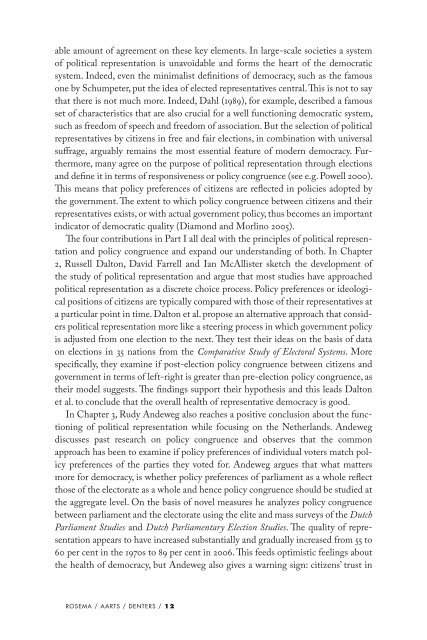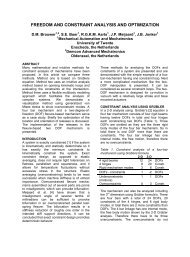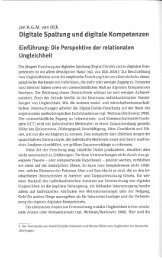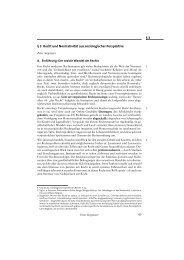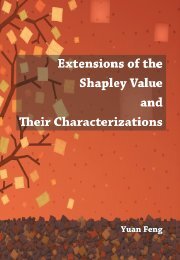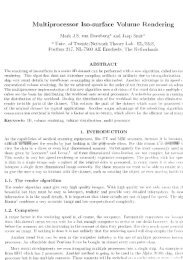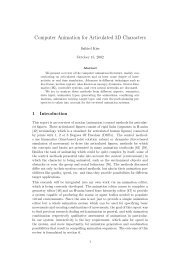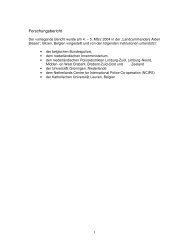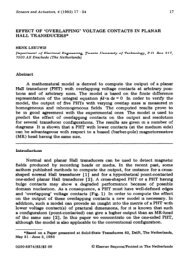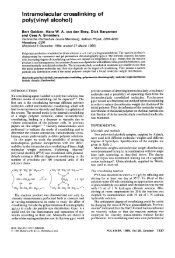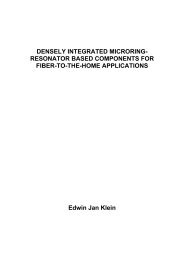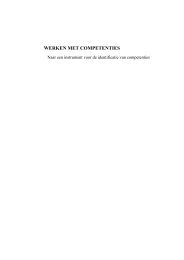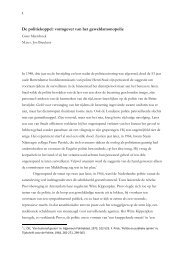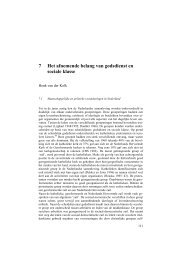download - UvA DARE
download - UvA DARE
download - UvA DARE
Create successful ePaper yourself
Turn your PDF publications into a flip-book with our unique Google optimized e-Paper software.
able amount of agreement on these key elements. In large-scale societies a system<br />
of political representation is unavoidable and forms the heart of the democratic<br />
system. Indeed, even the minimalist definitions of democracy, such as the famous<br />
one by Schumpeter, put the idea of elected representatives central. This is not to say<br />
that there is not much more. Indeed, Dahl (1989), for example, described a famous<br />
set of characteristics that are also crucial for a well functioning democratic system,<br />
such as freedom of speech and freedom of association. But the selection of political<br />
representatives by citizens in free and fair elections, in combination with universal<br />
suffrage, arguably remains the most essential feature of modern democracy. Furthermore,<br />
many agree on the purpose of political representation through elections<br />
and define it in terms of responsiveness or policy congruence (see e.g. Powell 2000).<br />
This means that policy preferences of citizens are reflected in policies adopted by<br />
the government. The extent to which policy congruence between citizens and their<br />
representatives exists, or with actual government policy, thus becomes an important<br />
indicator of democratic quality (Diamond and Morlino 2005).<br />
The four contributions in Part I all deal with the principles of political representation<br />
and policy congruence and expand our understanding of both. In Chapter<br />
2, Russell Dalton, David Farrell and Ian McAllister sketch the development of<br />
the study of political representation and argue that most studies have approached<br />
political representation as a discrete choice process. Policy preferences or ideological<br />
positions of citizens are typically compared with those of their representatives at<br />
a particular point in time. Dalton et al. propose an alternative approach that considers<br />
political representation more like a steering process in which government policy<br />
is adjusted from one election to the next. They test their ideas on the basis of data<br />
on elections in 35 nations from the Comparative Study of Electoral Systems. More<br />
specifically, they examine if post-election policy congruence between citizens and<br />
government in terms of left-right is greater than pre-election policy congruence, as<br />
their model suggests. The findings support their hypothesis and this leads Dalton<br />
et al. to conclude that the overall health of representative democracy is good.<br />
In Chapter 3, Rudy Andeweg also reaches a positive conclusion about the functioning<br />
of political representation while focusing on the Netherlands. Andeweg<br />
discusses past research on policy congruence and observes that the common<br />
approach has been to examine if policy preferences of individual voters match policy<br />
preferences of the parties they voted for. Andeweg argues that what matters<br />
more for democracy, is whether policy preferences of parliament as a whole reflect<br />
those of the electorate as a whole and hence policy congruence should be studied at<br />
the aggregate level. On the basis of novel measures he analyzes policy congruence<br />
between parliament and the electorate using the elite and mass surveys of the Dutch<br />
Parliament Studies and Dutch Parliamentary Election Studies. The quality of representation<br />
appears to have increased substantially and gradually increased from 55 to<br />
60 per cent in the 1970s to 89 per cent in 2006. This feeds optimistic feelings about<br />
the health of democracy, but Andeweg also gives a warning sign: citizens’ trust in<br />
rosemA / AArts / denters / 12


